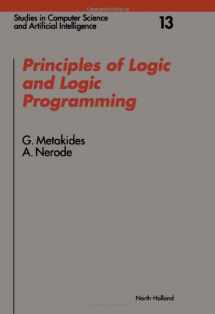
Principles of Logic and Logic Programming (Volume 13) (Studies in Computer Science and Artificial Intelligence, Volume 13)
Book details
Summary
Description
Logic's basic elements are unfolded in this book. The relation of and the transition from Logic to Logic Programming are analysed.
With the use and the development of computers in the beginning of the 1950's, it soon became clear that computers could be used, not only for arithmetical computation, but also for symbolic computation. Hence, the first arithmetical computation programs, and the first programs created to answer elementary questions and prove simple theorems, were written simultaneously. The basic steps towards a general method based on Logic, were accomplished in 1965 by Robinson and later by Kowalski and Colmerauer who made use of Logic directly as a Logic Programming language.
Each chapter includes solved as well as unsolved exercises provided to help the reader assimilate the corresponding topics. The solved exercises demonstrate how to work methodically, whereas the unsolved exercises aim to stimulate the reader's personal initiative. The contents of the book are self-contained; only an elementary knowledge of analysis is required. Thus, it can be used by students in every academic year, as simply reading material, or in the context of a course. It can also be used by those who utilize Logic Programming without having any particular theoretical background knowledge of Logic, or by those simply interested in Logic and its applications in Logic Programming.


We would LOVE it if you could help us and other readers by reviewing the book
Book review



